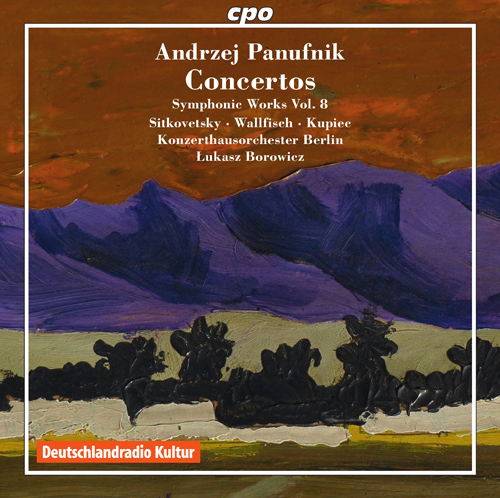24.2.22
23.2.22
PANUFNIK · LUTOSLAWSKI : String Quartets (Tippett Quartets) (2014) FLAC (tracks), lossless
Polish composers Andrzej Panufnik (father of Roxanna) and Witold
Lutoslawski were near contemporaries, but the string quartets of
Panufnik here (and much of his other music besides) follow that of
Lutoslawski chronologically as well as stylistically. The three quartets
by Panufnik and the single example by Lutoslawski here share a
reflective, deliberate mood and several principles of organization: a
nonserial, but pitch-collection-oriented, tonal world; extreme yet
subtly handled textures; and aspects of aleatoric (chance) procedure,
controlled as to its overall effect but imparting a kind of instrumental
freedom. The program makes sense, but it's hard to escape the feeling
that Lutoslawski does it better: the dry structural organization of the
Panufnik quartets doesn't quite fit with the extramusical content like
the rhythm of wind in telegraph wires. The Tippett Quartet is very much
in its element here, though, and it is likely that these rather
underexposed works will find an audience among those interested in the
consistently strong Polish contemporary scene of the later 20th century. James Manheim
15.2.22
ANDRZEJ PANUFNIK : Nocturne - Symphonic Works, Vol. 1 ( Łukasz Borowicz / Polish Radio Symphony Orchestra ) (2010) FLAC (tracks+.cue), lossless

All tracks & Credits
ANDRZEJ PANUFNIK : Speranza - Symphonic Works, Vol. 6 (Łukasz Borowicz, Konzerthausorchester Berlin) (2013) FLAC (tracks+.cue), lossless

+ last month
FRANKIE "Half-Pint" JAXON — Complete Recorded Works In Chronological Order Volume 3 · 1937-1940 (1994) FLAC (tracks+.cue), lossless
After cutting records with the Harlem Hamfats in Chicago during the years 1937 and 1938, Frankie "Half Pint" Jaxon made his final ...






















.jpg)
.jpg)



